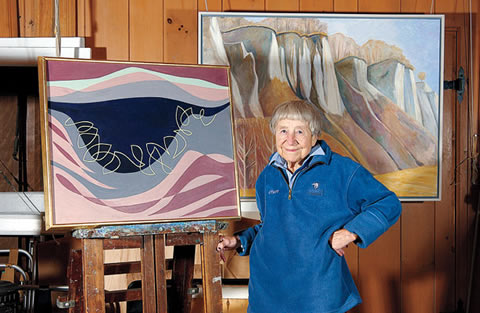For more than 70 years, Canadian artist Doris McCarthy celebrated Canada’s diverse and rugged wilderness with her bold and spirited works of art. Now, her creations will be celebrated by University of Toronto Scarborough, the recent recipient of her life’s work.
More than 200 paintings and more than 6,000 pieces of memorabilia – one of the largest gifts-in-kind ever made to the campus – were donated from the estate of McCarthy, who died in 2010 at age 100. The collection will allow U of T Scarborough, where McCarthy completed a BA in English in 1989, to enhance studio and art-history instruction and expand its public art programs. “This important gift enables us to integrate McCarthy’s artistic production more fully into our academic mission,” says Ann MacDonald, director and curator of the Doris McCarthy Gallery and a visual and performing-arts lecturer.

McCarthy, who taught art for 40 years at Central Technical School in Toronto, was an Order of Canada member whose paintings reside in collections across the country, including at the National Art Gallery and the Art Gallery of Ontario.

Recent Posts
People Worry That AI Will Replace Workers. But It Could Make Some More Productive
These scholars say artificial intelligence could help reduce income inequality
A Sentinel for Global Health
AI is promising a better – and faster – way to monitor the world for emerging medical threats
The Age of Deception
AI is generating a disinformation arms race. The window to stop it may be closing





